Fossil fuel promises are being broken, report says
- Published
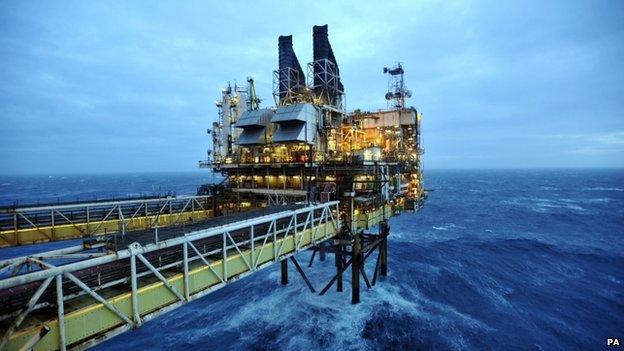
The report said G20 nations had been spending almost $90bn a year on finding more oil, gas and coal
World governments have been breaking promises to phase out subsidies for fossil fuels, a report says.
The Overseas Development Institute says G20 nations spent almost £56bn ($90bn) a year finding oil, gas and coal.
It comes despite evidence that two thirds of existing reserves must be left in the ground if the world is to avoid dangerous climate change.
A government spokesman said the North Sea oil and gas industry "creates jobs and generates investment" in the UK.
The spokesman said the tax regime for oil and gas includes a number of allowances which reduce the tax burden on specific, challenging gas or oil fields.
Allowances did not constitute a subsidy, he added.
The UK government has previously said it was helping firms find fossil fuels within the UK to increase energy security, attract royalties and help with the balance of payments.
Fuel exploration
However, the report said subsidies were irrational, a waste of public money and harmful to the environment.
With rising costs for hard-to-reach fossil fuel reserves - together with falling coal and oil prices - renewable energy was a better way to invest taxpayers' funds, it added.
The report's authors said the UK had introduced national subsidies for exploration valued at up to £757 million a year.
Those included tax breaks for North Sea exploration worth £528 million to Total (HQ France), £256 million to Statoil (Norway), £144 million to Centrica (UK) and £45 million to Chevron (USA) between 2009 and 2014.
The report also traced G20 governments' funding of fossil fuel exploration overseas.
The UK has been spending £418 million annually in public finance for exploration in Siberia, Brazil, India, Indonesia, Nigeria, Guinea and Ghana, it said. The funding was through export finance guarantees.
The USA has been spending £883 million annually in public finance for overseas exploration in Colombia, Mexico, Nigeria and Russia, the report added.
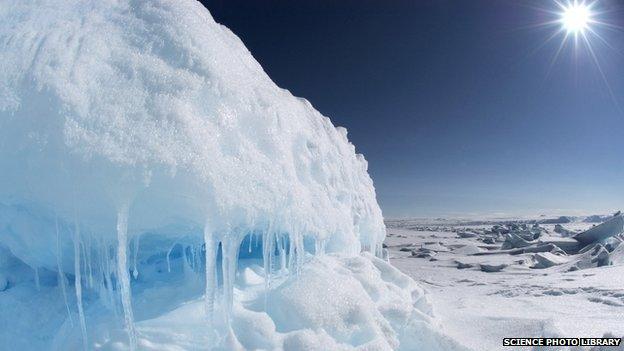
The report said subsidies were a waste of public money and harmful to the environment
Governments have supported fossil fuel companies to find new reserves because they produce revenue which increases the tax take and produces royalties in the future.
The ODI said that given the low market price of fossil fuels at the moment, the decision looked like a poor investment of public money.
"The government may argue that if it funds exploration now, it will be paid back later," ODI director Kevin Watkins told the BBC.
"Our argument is that in today's conditions, there is still likely to be a net loss - even when royalties and future tax revenues are taken into account - and that doesn't even take the climate change impact into account."
Existing commitments
Ministers were also driven to secure as much fossil fuel energy as possible within their own borders in order to maximise security of supplies and minimise imports.
The ODI said there was a tension between the objectives of energy security and climate protection.
However, the report said renewables were a better bet. It claimed every US dollar spent on renewable energy subsidies attracted $2.5 (£1.50) in investment, while a dollar in fossil fuel subsidies drew $1.3 (82p) of investment.
The authors said the USA provided £3.2 billion in national subsidies for fossil fuel exploration in 2013 - almost double the level of 2009, while Australia was providing £2.2 billion a year and Russia £1.5 billion a year.
China and Brazil have been subsidising exploration in foreign territory too, it said.
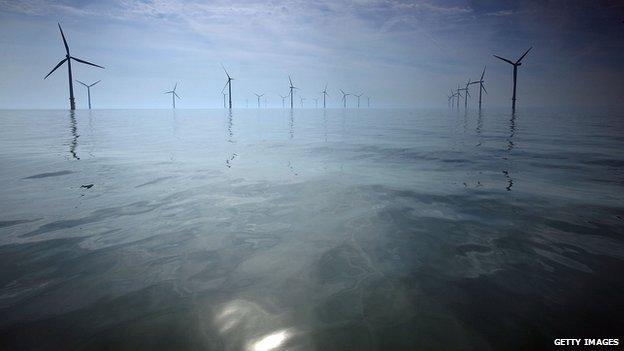
The report said money spent on renewable energy subsidies attracted better investment than fossil fuel subsidies
The report also highlighted £328 million by the G20 for exploration channelled through multilateral development banks.
It said phasing out exploration subsidies should be the first step for the G20 towards meeting its existing commitments to phase out all inefficient fossil fuel subsidies.
The report was developed in collaboration with the pressure group Oil Change International, whose director, Stephen Kretzmann, called on governments to end exploration subsidies.
"Five years ago, G20 governments pledged to phase out fossil fuel subsidies and take action to limit climate change. Immediately ending exploration subsidies is the clearest next step on both fronts," he said.
- Published2 November 2014
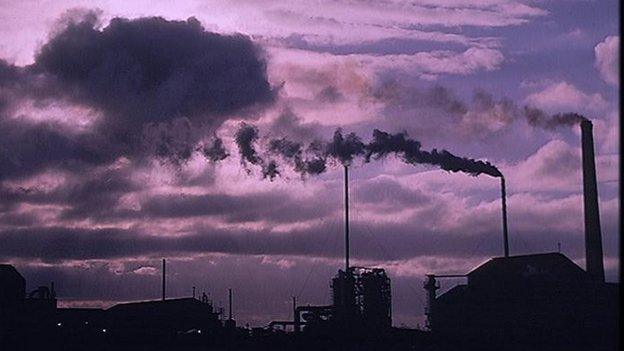
- Published20 October 2014
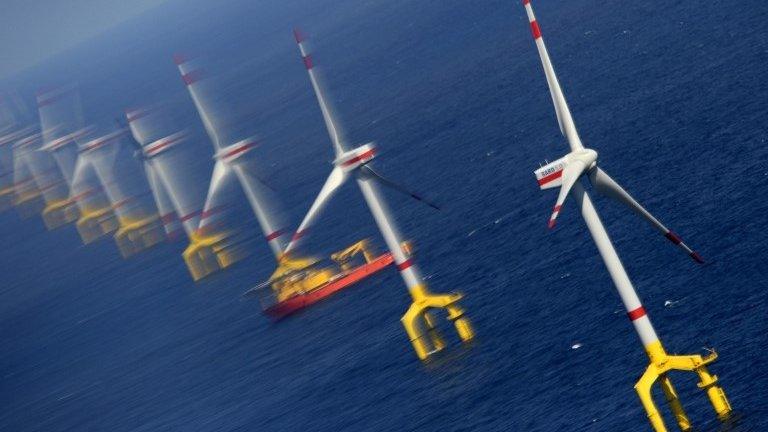
- Published29 April 2014
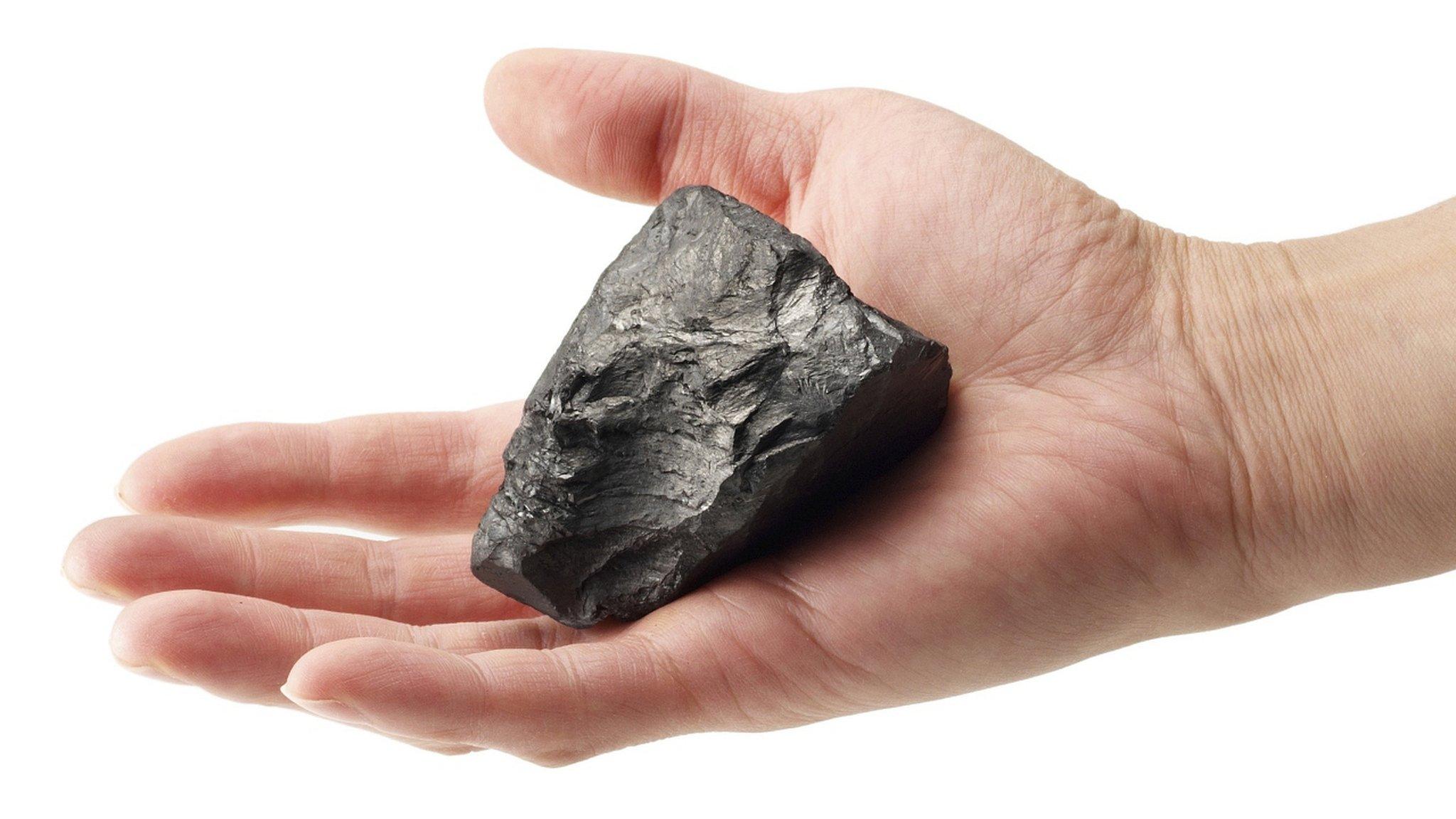
- Published7 November 2013
